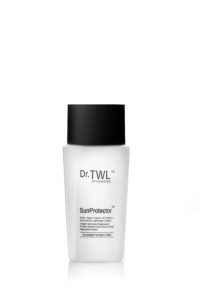Dermatologist’s Views On Skin DNA Test Kits
DNA-based skincare – do you really need it?
Would you pay for DNA skincare analyses and home test kits? As such a fad makes its rounds on media, we speak to our in-house dermatologist – Dr Teo Wan Lin on her views about DNA skincare analysis.
Do DNA skincare analyses and test kits work?
Consumers are intrigued by the idea of how their genetic make-up can determine their next skincare product. After all, a customised product or service always makes you feel more special. Still, it is important to know that home DNA test kits are not recognised by medical specialists. Such skin tests as it is are not validated by dermatologists. The results may be misleading, it is also dangerous to rely on laypersons to diagnose skin problems.
With the current state of the art, these DNA skincare analyses work by testing on a few specific components in our DNA (genetic markers known as SNPs) to supposedly predict one’s susceptibility to certain skin concerns, such as pigmentation or loss of skin elasticity.
Such methods are inaccurate, as the underlying cause of skin concerns are complex and often multi-factorial. Apart from our genes, lifestyle factors also play a significant part. UV exposure, smoking, hormones, exposure to drugs can also affect one’s susceptibility. To add, there is currently no single gene proven to directly cause any skin condition.
To diagnosis skin diseases, dermatologists require visual inspection and clinical diagnostic tools, and all these require sufficient clinical experience and training. True gene testing would also need to be completed extensively in well controlled laboratory settings. Suffice to say, home DNA skincare test kits being marketed as they are now are inherently limited by their scope and quality of tests and certainly not recognized by accredited dermatologists.
Can our genetics really tell us how to take better care of our skin?
Currently, our genetics can at best reveal medical conditions, such as eczema, psoriasis or rosacea.
Besides that, skin ageing has a lot to do with environmental and lifestyle factors. Several twin studies, for example, show genetically identical twins looking very different at a certain age. Despite having identical DNA, they are at different stages of ageing. This emphasises how ageing is heavily influenced by environmental and lifestyle factors.
Advances in cosmetic dermatology and skin rejuvenation can also help one look younger than their peers. The use of cosmeceuticals such as retinoids, or using sunscreen regularly, would definitely help.
In comparison, individuals who suffer from untreated skin conditions such as eczema or acne may find themselves looking older than their peers. This is because their skin is diseased. Apart from diseased skin, most skin ages the same way. Differences certainly exist, for instance between pigmented skin individuals, where Caucasians age faster than Asians due to the lower levels of pigment in their skin.
If you would like to know more about your skin, there are certain skin analysis devices that can detect issues such as pigmentation, moisture, elasticity, etc. If the devices are used in a clinical setting by an accredited dermatologist, then you may take the results as an accurate measure of your skin health.
What are your tips for skincare?
Healthy skin all have the same requirements much like a healthy body requiring a healthy diet. If you have a skin disease, it has to be diagnosed by an accredited specialist and treated with medications to improve skin health. Otherwise, to maintain skin health, get started at an early age on cosmeceuticals which are skincare products backed by extensive dermatological research and formulated using pharmaceutical grade bioactive ingredients that target specific aspects of skin health. As a baseline, it is important to use cleansers that give a thorough cleanse but not excessively drying at the same time, even for oily skin types which may react to drying cleansers by producing more oil in a skin condition known as reactive seborrhea. The Le Lait™ Milk Cleanser for example is a gentle cleanser that removes dirt and soothes the skin at the same time, whilst the Miel Honey™ Cleanser is an anti-bacterial cleanser containing medical grade honey that cleans without stripping away the skin’s natural moisture barrier. A proper medical grade sunblock should also not be forgotten, such as the lightweight soothing SunProtector™. If you have oily skin, start using a hyaluronic acid serum to help with skin hydration. Don’t forget your Vitamin C serums, which help to fight acne, lighten scars and pigmentation.





